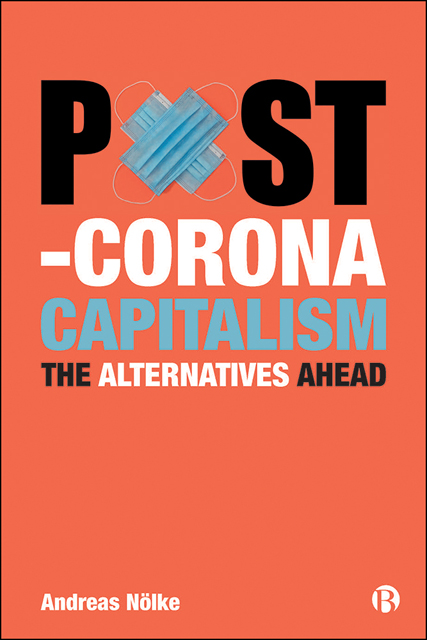Book contents
- Frontmatter
- Dedication
- Contents
- List of Abbreviations
- Acknowledgements
- Preface
- 1 Introduction: Confronting a Multidimensional Crisis of Capitalism
- Part I Capitalism and Society
- Part II Domestic Institutions of Capitalism on the Demand Side
- Part III Domestic Institutions of Capitalism on the Supply Side
- Part IV The International Institutions of Capitalism
- Part V Anthropocene Capitalism
- Part VI Geo-economic Shifts in Global Capitalism
- Part VII Ideologies in Contemporary Capitalism
- References
- Index
6 - Migration: Closed Borders or Open Doors?
Published online by Cambridge University Press: 13 October 2022
- Frontmatter
- Dedication
- Contents
- List of Abbreviations
- Acknowledgements
- Preface
- 1 Introduction: Confronting a Multidimensional Crisis of Capitalism
- Part I Capitalism and Society
- Part II Domestic Institutions of Capitalism on the Demand Side
- Part III Domestic Institutions of Capitalism on the Supply Side
- Part IV The International Institutions of Capitalism
- Part V Anthropocene Capitalism
- Part VI Geo-economic Shifts in Global Capitalism
- Part VII Ideologies in Contemporary Capitalism
- References
- Index
Summary
The coronavirus crisis deepens the dilemma economies face with regard to immigration. On the one hand, the crisis created an immediate communitarian impetus (see Chapter 32), characterized by prioritization of domestic social ties and community-based solidarity. This trend undermines the public legitimacy to accept foreigners. On the other hand, the coronavirus crisis deepens health and economic divides between the Global North and the Global South. Therefore, migration pressures will increase. Next to these fundamental questions about the long-term trajectory of migration, the coronavirus crisis also raises immediate questions for migrant workers and their relatives; for example, with regard the closing of borders, accommodation conditions and remittances. Does the crisis lead to a recognition of the crucial work provided by migrant workers or does it negatively affect the situation of the latter?
Migration and International Political Economy
Questions of migration do not belong to the classical issues in Comparative or Political Economy, but have found quite some attention in recent scholarship. On the one side, political economists have become involved in the very controversial debates on migration and the rise of exclusionary populism in the EU and the US. On the other side, political economists working on the Global South have developed a keen interest in the living conditions of migrant workers and the remittances they are sending back to their families.
During the last years, the rise of exclusionary populist parties in many European countries, but also in the US (Republican Party during the Trump administration) has led to a very controversial discussion of cross-border migration. Scholarship on exclusionary populism distinguishes between two basic motivations for anti-immigration sentiments. The cultural perspective highlights the importance of status anxiety for exclusionary populism, whereas the economic perspective explains these sentiments by concerns regarding the individual economic situation (Gidron and Hall, 2017), with migrants as potential competitors for jobs, social benefits or affordable accommodation. Scholarship in International Political Economy primarily focuses on the latter perspective and studies not only the economic impact of cross-border migration on the receiving societies, but also the push and pull factors motivating cross-border migration (Clarkson, 2019).
- Type
- Chapter
- Information
- Post-Corona CapitalismThe Alternatives Ahead, pp. 35 - 40Publisher: Bristol University PressPrint publication year: 2022



